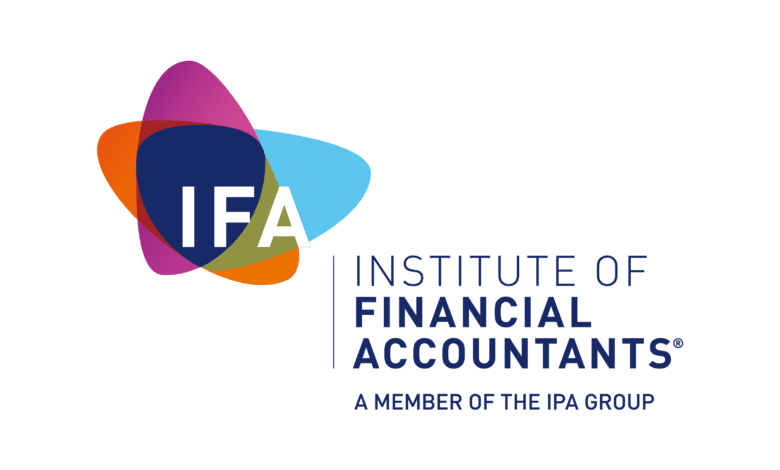
As organisations face more pressure to reduce their impact on the climate, businesses must place environmental sustainability at the heart of their corporate strategy. The accountancy sector can play a pivotal role in helping firms adopt better business practices that not only address current sustainability, but are also maintainable long term, says John Edwards, CEO of the Institute of Financial Accountants (IFA).
The pandemic and COP26 have served as a stark reminder that sustainability issues are fundamental to an organisation’s survival as they become increasingly accountable for not just the source of their finances, but also the environmental pedigree of their operations. This positions accountants at a significant advantage, as managing that sustainability requires risk assessment and reporting skills, services that they are ideally placed to provide. As trusted advisers this presents accountants with a new revenue opportunity of adopting the burden of environmental planning and accountability on behalf of their clients. As sustainability efforts evolve so the sector is primed to innovate by offering eco services measuring the degree to which their clients are operating sustainably. Here are a few areas which could see accountants in hot demand:
Integrated reporting
Integrated reporting can reap significant benefits for a business. It arms SMEs with a better understanding of their own organisation and shows how they can better navigate the opportunities and threats that the future environment may bring. Integrated thinking takes a holistic approach to an organisation or business in the context of its external environment, enabling it to see how acting responsibly can create value in pounds and pennies in the short, medium and longer term. Dissecting and reporting such information enables business owners to clearly see how these values link to their business performance.
ESG reporting
Environmental, social and governance issues (ESG) are now key concerns for global investors whose sights are fixed on sustainability and climate change. The transition towards a net zero future is on every business’ agenda with investors wanting to understand a company’s future exposure should a carbon tax be introduced. For that reason, emissions need to be accurately measured, reported and assured, and they are different for each business. This offers a great opportunity for accountants to provide businesses with the support to identify, report, calculate, and of course deliver commercial advice within the context of their business, all with appropriate measurement.
While there is currently a global drive to standardise ESG measurement and frameworks, there are Scope 3 emissions which can be used as a current basis: greenhouse gas emissions are categorised into three groups or ‘Scopes’ by the most widely used international accounting tool, the Greenhouse Gas (GHG) Protocol. Scope 1 covers direct emissions from owned or controlled sources. Scope 2 covers indirect emissions from the generation of purchased electricity, steam, heating and cooling, consumed by the reporting company. Scope 3 includes all other indirect emissions that occur in a company’s value chain.
While financial numbers are prepared in accordance with accounting standards, there aren’t yet any defined standards for ESG, presenting a widespread growth opportunity for auditing.
Providing assurance
Greenwashing concerns are coming to the fore, in line with increasing numbers of organisations providing more transparency around sustainability and expanding the information reported and disclosed to their stakeholders about climate commitments and their impact. This is leading to further questions around the depth of disclosures being made, risk exposure and resilience, and the overall truth behind claims. The industry has recently warned SMEs and their accountants not to fall into the ‘unwary trap’ of greenwashing and to ‘not cut corners’ on sustainability reporting, as it is an accounting fraud. Companies may want — or be requested to provide — verification regarding their disclosures to maintain stakeholder confidence.
Independent assurance over climate reporting and disclosures is particularly important as it can boost reporting credibility as well as increase business resilience and trust in the financial markets. This process can ensure a robust audit trail related to climate and broader ESG reporting, including through the examination and testing of management reporting, sustainability models and disclosures. If companies wish to build stakeholder confidence and comply with expected regulatory obligations, companies should begin focusing on audit preparedness.
Super accountant
It’s only a matter of time before it becomes clear just how critical accountants will be to businesses as they focus on creating a sustainability model. The cost for any business that chooses to overlook sustainability will not be inconsequential as mining giant Rio Tinto discovered last year. In response to criticism from investors, the company was forced to dismiss three senior executives, including the global CEO, over the destruction of two ancient Aboriginal rock shelters for an iron ore mine in Western Australia.
So, can accountants really save the world? Fundamentally, accountants are trusted business advisers with the skills to provide responsible decision making and advice on a sustainable business model. Steering business down a more sustainable path is no small responsibility, and accountants could potentially be the lynchpin in helping to drive down emissions. If so, then the answer is, why not?









